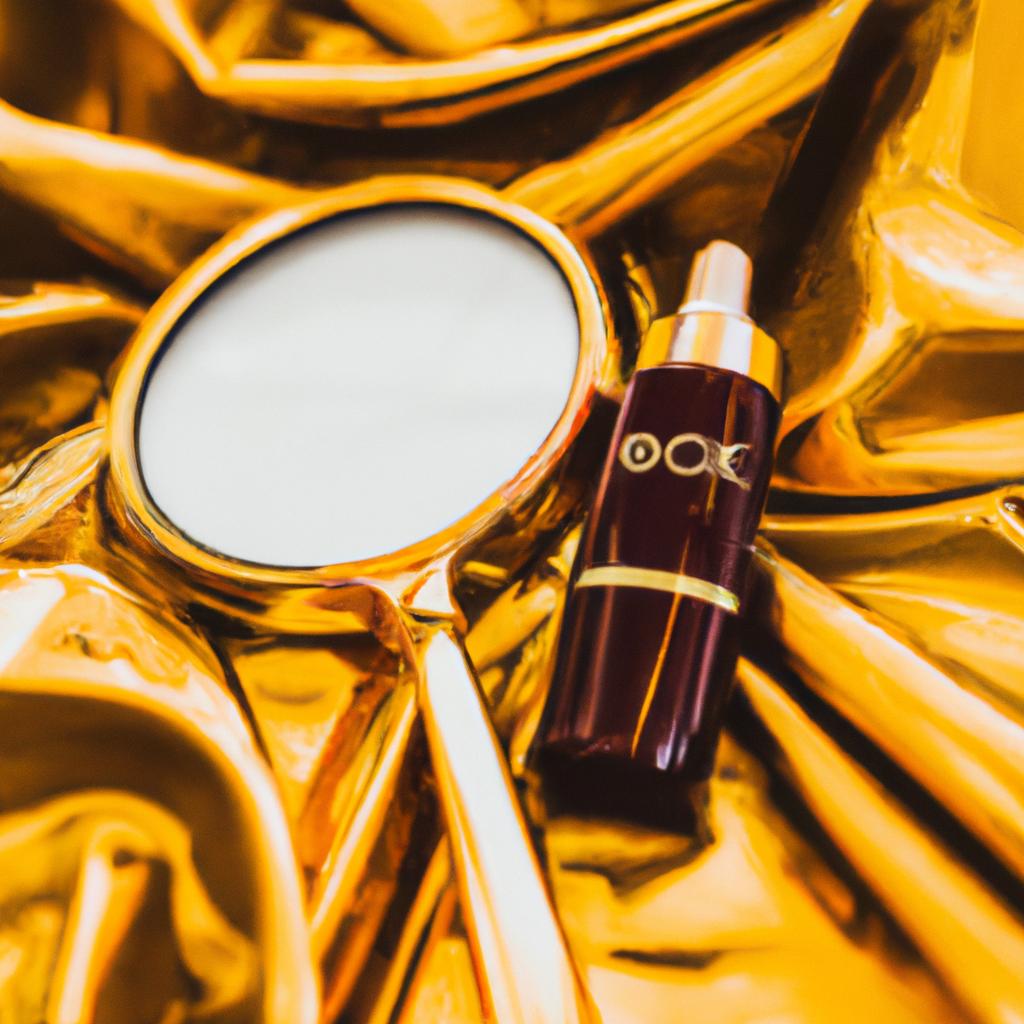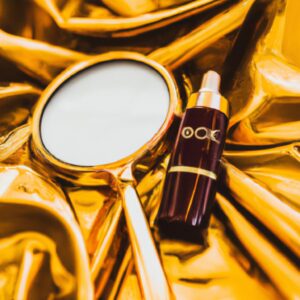The Role of Antioxidants in Skin Repair and Anti-Aging
Antioxidants are substances that help protect our bodies from the damaging effects of oxidative stress caused by free radicals. Free radicals are unstable molecules that are created when oxygen interacts with certain molecules in our bodies. When these molecules interact, they create a reaction that can cause damage to our cells and tissues. Antioxidants work to counteract these reactions by neutralizing the free radical molecules.
When it comes to skin repair and anti-aging, antioxidants can play a significant role. By fighting against free radicals, they help reduce inflammation in the skin, which can lead to improved skin tone, texture, and brightness. Additionally, they help protect against sun damage and other environmental factors that can contribute to premature aging. Antioxidants have also been linked to the stimulation of collagen production, which can help keep skin plump and reduce wrinkles.
The human body has its own natural antioxidant defense system. Our skin produces enzymes such as superoxide dismutase (SOD) and catalase to help protect itself from free radical damage. However, in order to keep our skin looking youthful, we need to supplement our natural defenses by getting antioxidants through diet, lifestyle, and skincare products.
The Natural Antioxidant Defense System of the Skin
Antioxidants are essential components of the body’s natural defense system. They work to protect cells from damage and aid in cellular repair. Our skin also happens to be our largest and most exposed organ, making it especially vulnerable to the damaging effects of free radicals. Our body has developed a natural antioxidant defense system to protect our skin from these damaging free radicals.
This antioxidant defense system is made up of several components. One component is the antioxidants that are naturally produced by our bodies. These include enzymes like glutathione, SOD (superoxide dismutase), and catalase. Our bodies also get help from antioxidants that are found in food sources, such as vitamins C, E and A, and from supplements. These antioxidants help neutralize the damaging effects of free radicals in the body.
Another component of the antioxidant defense system is the outer layer of the skin, which acts as a barrier to external environmental factors. This layer is composed of proteins and fatty acids that also contain antioxidants that help protect the inner layers of the skin from damage.
Finally, the epidermis plays an important role in skin repair and rejuvenation. This layer contains specialized cells that produce protector substances that replenish the skin’s natural defense system. Additionally, the epidermis produces collagen and elastin which help keep skin smooth, firm, and elastic. These components all contribute to the antioxidant defense system of the skin and help to keep skin healthy and youthful looking.
Common Dietary Antioxidants and their Benefits for Skin Repair and Anti-Aging
Antioxidants are molecules that help protect our cells and bodies from damage caused by stress, environmental toxins, and other sources of oxidative damage. There are a variety of dietary antioxidants that provide our bodies with the benefits of skin repair and anti-aging.
Vitamin C is an essential antioxidant that has been linked to healthier, younger-looking skin. It helps reduce inflammation, promotes collagen production, prevents wrinkles, and provides protection from environmental pollutants by neutralizing free radicals.
Vitamin E is an important antioxidant for skin health. It is known to help form a protective barrier on skin cells to prevent damage from the sun’s UV rays. Vitamin E also helps reduce the appearance of wrinkles and improve skin tone and elasticity.
Lycopene is a powerful carotenoid found in tomatoes, watermelons, and pink grapefruits. This antioxidant reduces oxidative stress and helps to protect skin cells from the sun’s UV radiation. Lycopene can help decrease the appearance of fine lines and wrinkles and promote a more even complexion.
Selenium is a trace mineral that is essential to overall health and wellness. This antioxidant has been linked to reducing inflammation and protecting the skin from UV-induced damage. Studies have also shown that selenium can help improve skin elasticity and hydration.
Polyphenols are a type of antioxidant found in herbs, spices, and teas. These plant compounds can help reduce inflammation and protect skin from oxidative damage. They also help to protect against wrinkle formation, reduce UV-induced pigmentation, and promote a healthy glow.
Flavonoids are antioxidant compounds found in certain fruits, vegetables, and herbs. They can help reduce inflammation and protect the skin from oxidative damage. Flavonoids have also been linked to increased skin hydration and improved skin elasticity.
These are just a few of the dietary antioxidants that can help promote skin repair and anti-aging. Eating a balanced diet full of nutrient-rich foods is the best way to ensure that you get the antioxidants your body needs to remain healthy and youthful looking.
Lifestyle Factors That Impact Antioxidants
The lifestyle choices we make have a big impact on the amount of antioxidants in our body. Diet, exercise, and emotional state all play a role in determining how much antioxidants our skin can use for protection.
A diet that is high in fresh fruits and vegetables is a great way to increase antioxidant levels. These foods are loaded with protective plant compounds like polyphenols, carotenoids, and resveratrol. Additionally, consuming antioxidant-rich foods like nuts, teas, and spices can help maintain healthy levels of these compounds.
Exercising regularly is also beneficial as it helps to reduce oxidative stress on the body. Regular physical activity helps the body to flush out toxins and increases circulation, allowing more antioxidants to reach the skin. Additionally, it increases the production of endorphins which reduce inflammation and support healthier skin cell renewal.
Maintaining an overall positive emotional state is an important factor in preserving the skin’s natural antioxidant defence system. Stress causes elevated levels of cortisol, which can interfere with the immune system and increase the risk of certain skin conditions. Taking time to relax and de-stress through meditation and breathing exercises can help to reduce cortisol levels and promote healthy skin.
The Role of Topical Antioxidants in Skincare and Their Benefits
Antioxidants, both dietary and topical, offer a variety of skin health benefits. In skincare specifically, the topical application of antioxidants is becoming increasingly popular as people are learning more about their many potential benefits. Antioxidants used in skincare help to reduce the effects of environmental stressors, support collagen production, fight off free radicals, slow the signs of aging, and protect the skin from oxidative damage.
Topically applied antioxidants can come in many forms. Some of the most popular include vitamin C and E, ferulic acid, green tea extract, coenzyme Q10, and resveratrol. Vitamin C is well-known for its brightening abilities, while vitamin E helps to reduce the appearance of wrinkles and scarring. Ferulic acid has antioxidant, anti-inflammatory, and anti-aging effects. Green tea extract helps to reduce pore size and redness, and coenzyme Q10 can help to reduce wrinkles and improve skin elasticity. Lastly, resveratrol helps to reduce inflammation and improve overall complexion.
For the best results, look for antioxidants that are formulated with other complementary ingredients such as acids, oils, or botanical extracts. This combination will give your skincare routine an extra boost and help to address other specific skin concerns.
Be sure to also check the expiration date of products containing antioxidants, as they do have a shelf life. After the product has expired, its antioxidant content may be diminished, making it less effective.
The Scientific Research Supporting the Benefits of Antioxidants
The science behind antioxidants clearly shows their beneficial properties when it comes to skin health and anti-aging. A wealth of research conducted over the years has highlighted the positive impacts that antioxidants can have in a wide range of areas.
Scientific studies have suggested that Vitamin C is a powerful antioxidant that can help reduce inflammation and protect skin from free radicals. Vitamin E is also a potent antioxidant that helps keep skin healthy and helps to reduce oxidative stress. Studies have also shown that green tea extract and mine polyphenols are beneficial for skin repair and may also prevent age-related damage due to their antioxidant properties. Other natural compounds such as berry extracts, pomegranate extract, resveratrol, and coenzyme Q10 have all been found to be effective antioxidants.
Studies have also indicated that topical application of certain antioxidants can help to repair damaged skin and reduce the signs of premature aging. These types of products can be used to protect the skin from the damaging effects of the sun and environmental pollutants. Other research has suggested that regular use of antioxidants can reduce inflammation and protect the skin from UV rays.
Furthermore, studies have demonstrated that antioxidants can also offer protective benefits against skin cancer. Antioxidants can scavenge free radicals and minimize oxidative damage, which can help reduce the risk of developing skin cancer. Additionally, they can also reduce the risk of oxidative stress-induced photoaging, which causes premature wrinkles, discoloration, and sagging.
Overall, the scientific evidence clearly supports the use of antioxidants for skin health and anti-aging. From dietary sources to topical applications, antioxidants can help keep skin looking youthful and vibrant while protecting it from the many environmental factors that can cause damage.
The key takeaways from this guide around the role of antioxidants in skin repair and anti aging are these:
- Antioxidants are naturally occurring compounds that help neutralize toxins and protect us from cellular damage.
- The most common dietary antioxidants include Vitamins A, C, and E, and many minerals such as selenium and zinc.
- Lifestyle factors such as stress, diet, and sun exposure can impact our levels of antioxidants.
- Topical antioxidants can be found in beauty products and can help protect the skin from damaging free radicals.
- Scientific research is increasingly showing evidence of the anti-aging and skin repairing benefits of antioxidants.
These takeaways are important to consider when discussing the role of antioxidants in skin repair and anti-aging. Everyone’s individual lifestyle can influence their need to use antioxidant-rich products or supplements in their skincare regime. It is essential to seek out reputable sources of information and medical advice when making decisions about using products that contain antioxidants.
Conclusion
Antioxidants are essential for protecting our skin from damage, promoting skin repair, and preventing signs of aging. Our bodies have a natural antioxidant defense system that is supported by a healthy diet, lifestyle habits, and the topical application of antioxidant-rich skincare products.
The scientific research has proven that antioxidants are effective in slowing down the process of skin aging and repairing existing damage. To maximize your anti-aging and skin repair results, it is important to focus on eating an antioxidant-rich diet, reduce exposure to environmental stressors, and including antioxidants in your skincare routine.
Takeaways:
- Antioxidants play an important role in skin repair and anti-aging.
- Our bodies naturally defend against oxidative damage with antioxidants.
- Certain dietary antioxidants, lifestyle practices, and topical skincare can help protect and repair the skin.
- The research supports the use of antioxidants to improve skin health and reduce signs of aging.
By understanding the key role of antioxidants in skin repair and anti-aging, you can feel empowered to make informed decisions about your diet, lifestyle, and skincare choices. With this knowledge and an antioxidant-rich approach, you can keep your skin looking healthy and youthful.
comments: 0

